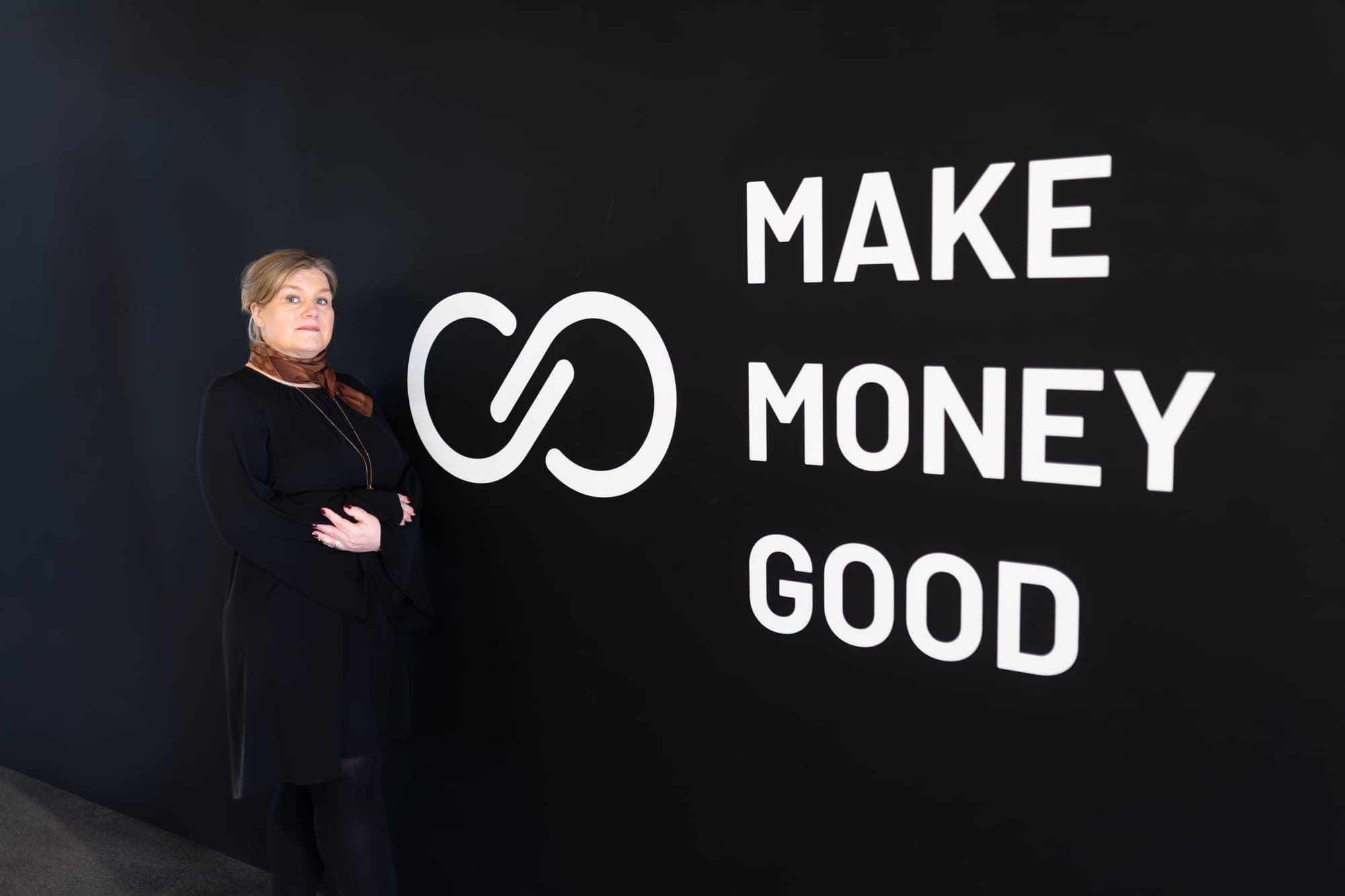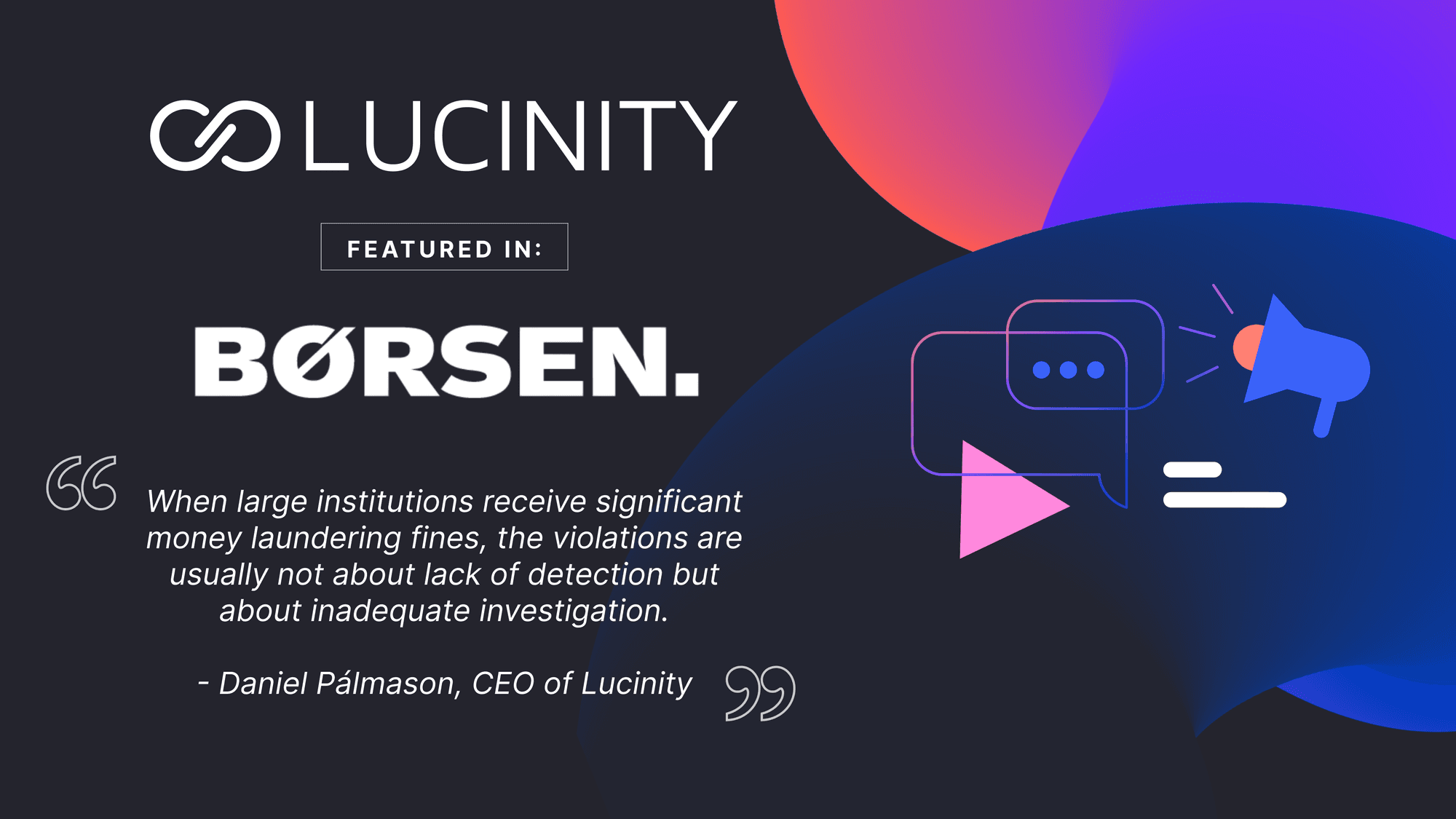Simply human technology
Through innovation, we can become a better human society in more ways than one.
We typically think of technology as the opposite of human emotions — something cold, based on machines and algorithms. But technology helps make our lives better in countless ways, and it’s time to investigate its human side, as strange as it may seem.
Lucinity’s value of “Simply Human” solutions represents our empathetic approach to technology. We believe that through innovation, we can become a better human society in more ways than one. Here are three examples of empathetic innovation that are manifested in our company’s philosophy and practical conduct.
Harnessing technology for the greater good
Most startups are for-profit companies, and monetary gain plays a central role in the way they make decisions and operate. But even companies that are not at all focused on social impact can leave a positive mark on our world. Here at Lucinity, we’re proud to focus our core technology on helping the global society by minimizing money laundering, which is often used to sponsor disturbing activities. We are proud of creating societal benefits through simplicity, by de-cluttering the AML world and allowing financial crime investigators to do their jobs more efficiently.
But there are various ways to create “good technology.” In addition to the product itself, companies can build an empathetic hiring and employment policy, encourage employees and business partners to volunteer their time and expertise, and more.
Business initiatives that see the value of operating for both monetary gain and positive change mark the future of the ecosystem. Today’s investors, talent, and end-users are interested in companies’ values as much as they care about the product and business model. This choice is good for both business and our society.
Turning human experiences into tech
Artificial intelligence is doing its best to mimic human behavior and thought, studying how we react and when we show emotions. As advanced as they may be, algorithms don’t have gut feelings and need our help to understand the world. Adding human empathy into the algorithmic equation makes technology better, and is far more than a technical procedure. Empathy is the ability to relate to others’ experiences, and that’s precisely what we want our AI-inspired processes to do.
Sometimes, the mirror technology puts in front of humanity presents an alarming picture. In 2016, Microsoft released a bot that studied people’s tweets and turned into a racist disaster that had to be removed from the social network. But we can also teach AI the goodness of mankind and where we would like to be as a species.
At Lucinity, we focus on human experiences to form what we call “Human AI.” We want to shift AML technology from rule-based to behavior-based in order to discover and mitigate suspicious behaviors. For that, we need to describe the world to our algorithms and offer plenty of feedback along the way. In turn, we can translate complex model findings into understandable and actionable information for financial crime fighters everywhere.
Forming empathetic UX
The mere idea of UX is based on empathy. We want to step into the potential user’s shoes and think of obstacles and questions that may arise while putting the product to work. Human-centric companies build user-friendly products that are accessible, private, and safe. Their designers predict friction points and help users reach initial success as quickly as possible. More than 97% of bank customers rank customer experience as their top priority when choosing a financial service, and online experiences are an important part of that.
The anti-money laundering arena is infamous for creating products that are difficult to comprehend. When we set out to build Lucinity, one of the core goals was to provide a friendly product. Our explainable AI technology offers comprehendible explanations when flagging certain activities and doesn’t leave financial pros searching for answers.





